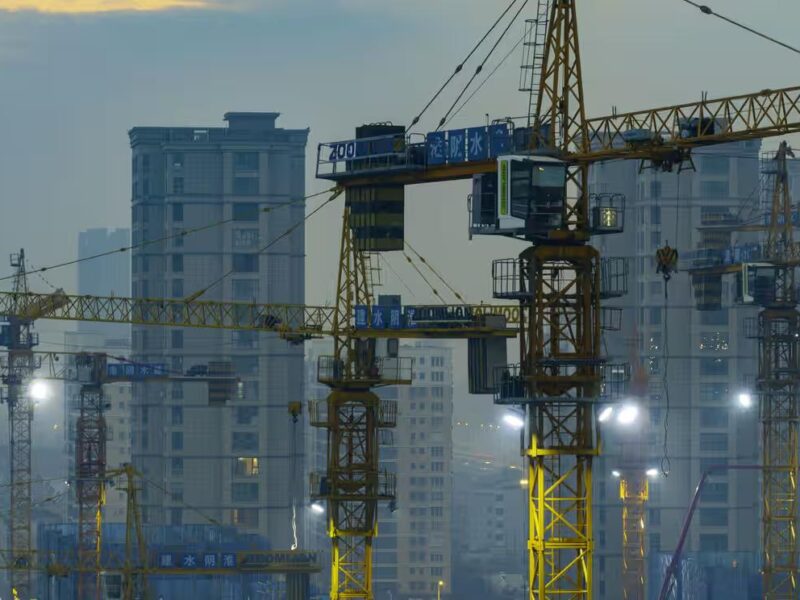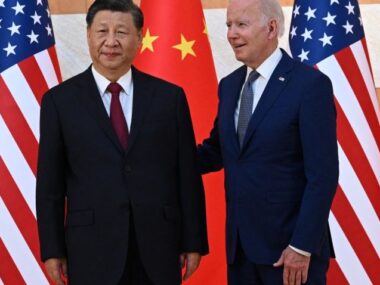Among the increasingly delicate issues are record-high young unemployment and a faltering real estate market.
China is tightening down on negative commentary about the financial industry and other sectors as the government seeks to promote public confidence in the face of severe economic headwinds.
This month, the Weibo Finance account, which has over 1.5 million followers, issued a warning against publishing any comments “that bad-mouth the economy.” The post appears to have been removed since then. According to Bloomberg, Weibo warned numerous other finance celebrities to “avoid crossing red lines” and write less on the economy. Weibo did not respond to a comment request.
On December 12, China’s Ministry of State Security published an article in which it stated that “singing the bright theory of China’s economy” was necessary.
“Various cliches intended to denigrate China’s economy continue to appear,” the ministry stated in a second WeChat post. Their essence is to establish a ‘discourse trap’ and a ‘cognitive trap’ of China’s fall in order to cast doubt on the system and path of socialism with Chinese characteristics.”
“Economic topics used to be widely discussed,” said Alicia Garca-Herrero, chief economist for Asia Pacific at Natixis, an investment bank. “But there is an increasing number of topics that are becoming problematic.”
Record high young unemployment rates (the government ceased publishing this data in August), deflation, the ailing property industry, and capital flight are all considered highly sensitive in China’s economy.
For some time, the limits have been increasing. In June, the platform blacklisted three finance pundits, one of whom had 4.7 million Weibo followers, for “hyping up the unemployment rate, spreading negative information… [and] smearing the development of the securities market.”
Foreign investment, according to Dan Wang, chief economist at Hang Seng Bank, is “the number one sensitive issue now” due to its linkages to cross-border financial flows.
“There is a gap between actual capital flows and official attitudes toward whether or not foreign investors are welcome.” [The government] openly encourages international investors, but the current scenario is not favorable for foreigners to stay. “There is a mismatch between what the government says and what is happening in the market,” Wang remarked.
Another touchy subject is property. The real estate sector, which accounts for between a quarter and a third of GDP, has struggled to recover from the “three red lines” policy, which restricted developers’ ability to take on debt, causing construction on hundreds of residential developments to stall.
Evergrande, previously China’s largest developer, is undergoing a difficult financial restructuring, while Country Garden, its primary competitor, defaulted in October.
According to the National Bureau of Statistics, new home prices declined in November, and property investment fell 9.4% year on year in the first 11 months of the year. Analysts say there is a growing gap between official statistics and private market data as Beijing seeks to rein in the sector’s pessimism.
There is also pressure on Hong Kong economists to be upbeat about the mainland economy, though analysts say this is a long-term tendency stemming from a general climate of respect to Beijing rather than particular directives.
“This was even more obvious following the three red lines policy that instigated the popping of China’s property bubble in 2020,” said Andrew Collier, managing director of financial research firm Orient Capital Research. “While there were structural reasons for the decline, it was triggered by the three red lines policy.” Economists and property professionals continued to predict a bottom for the fall and believed that Beijing will support the property market. But that didn’t work.”
“We need to conform to the official party line,” Wang stated. We need to focus on the positive aspects of the economy, but finding those bright spots is difficult.”
Although the two are linked, some analysts think that confidence will be just as vital, if not more, than government support in reviving China’s economy. Collier went on to say: “Statements about a turnaround in China property won’t do the trick.”
“People need to understand what the policies are for,” Wang added, “but there is a lack of discussion in the public space.” The government must be more open to discussing why it does or does not do certain things.”











